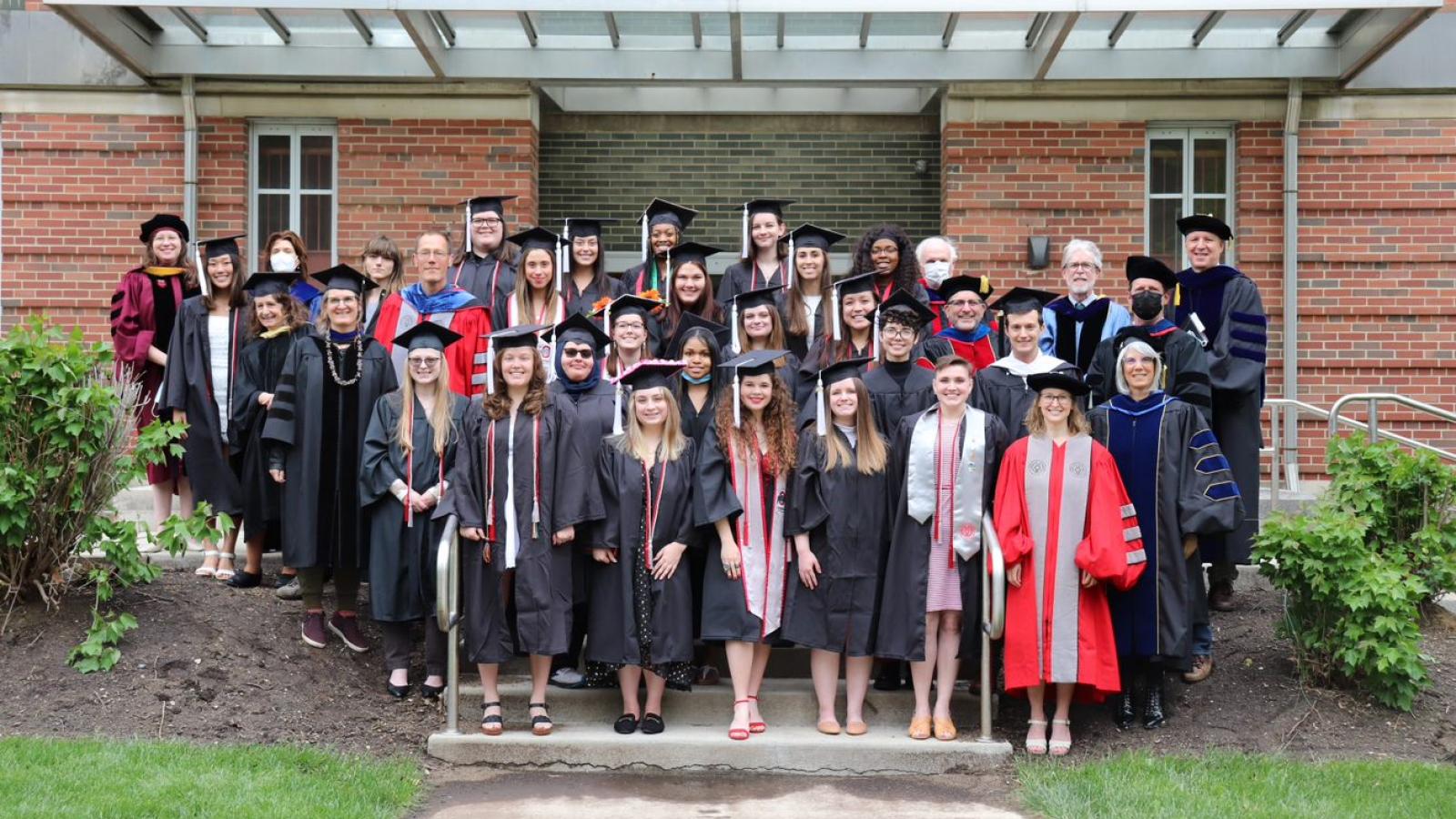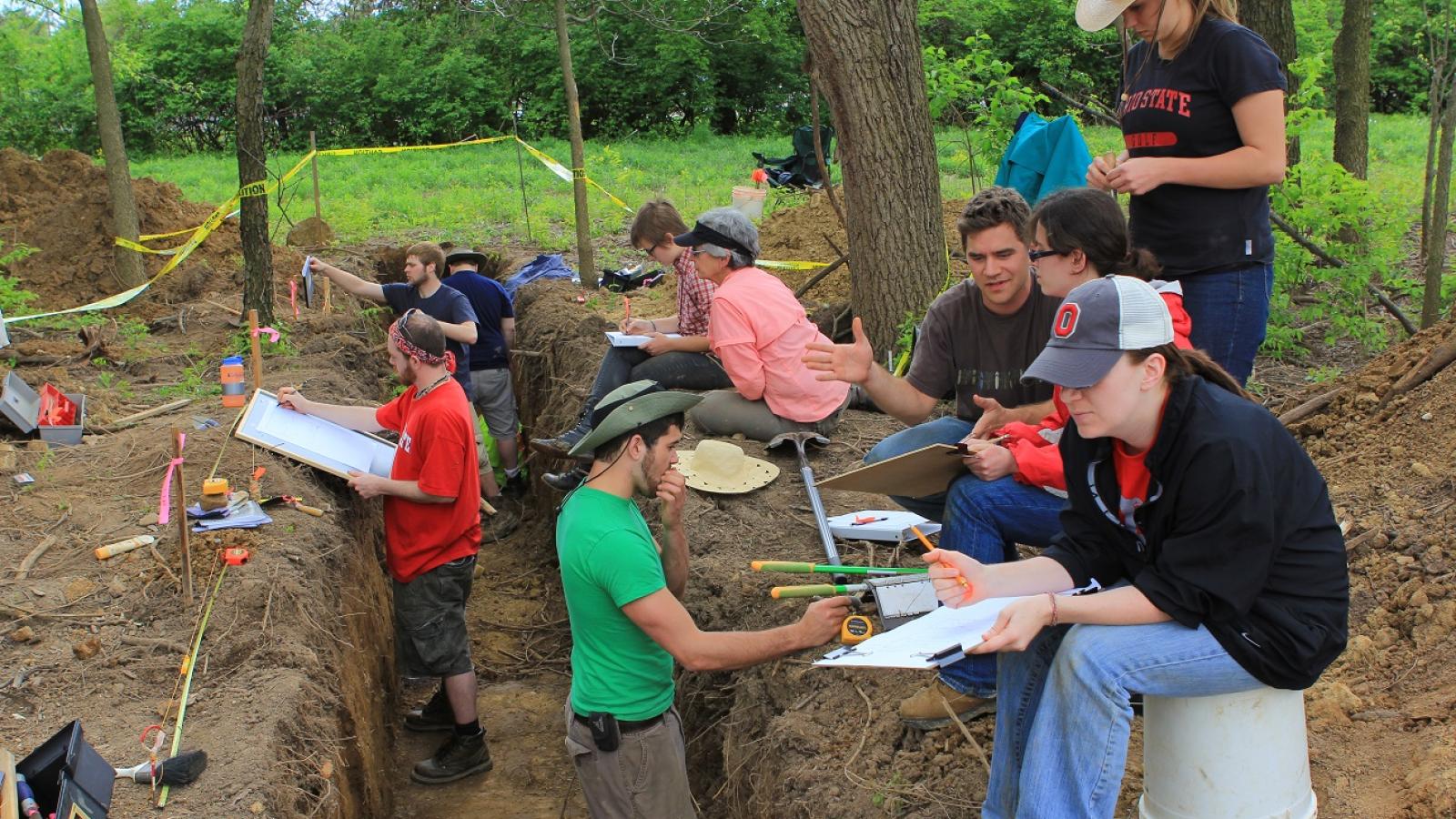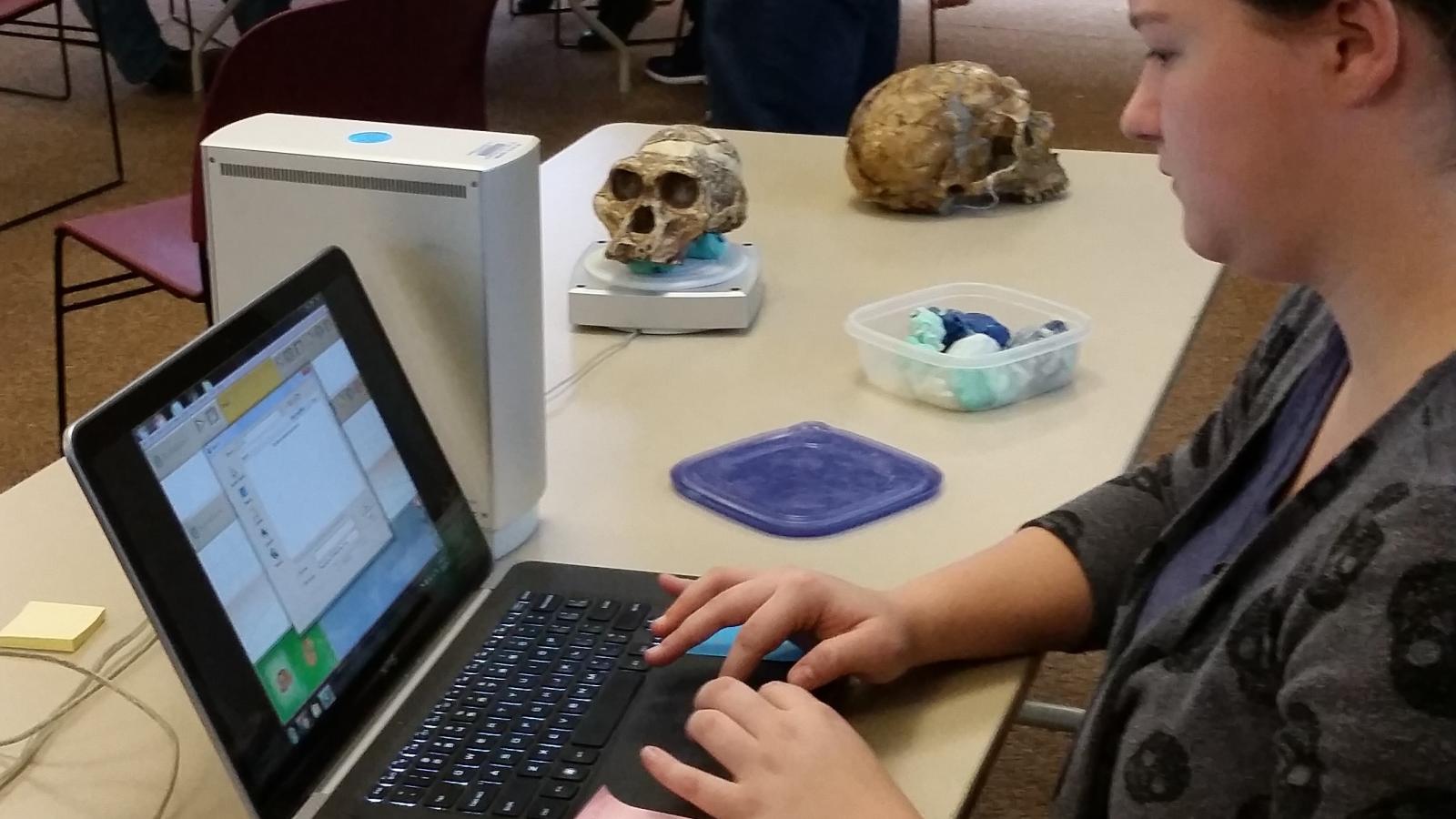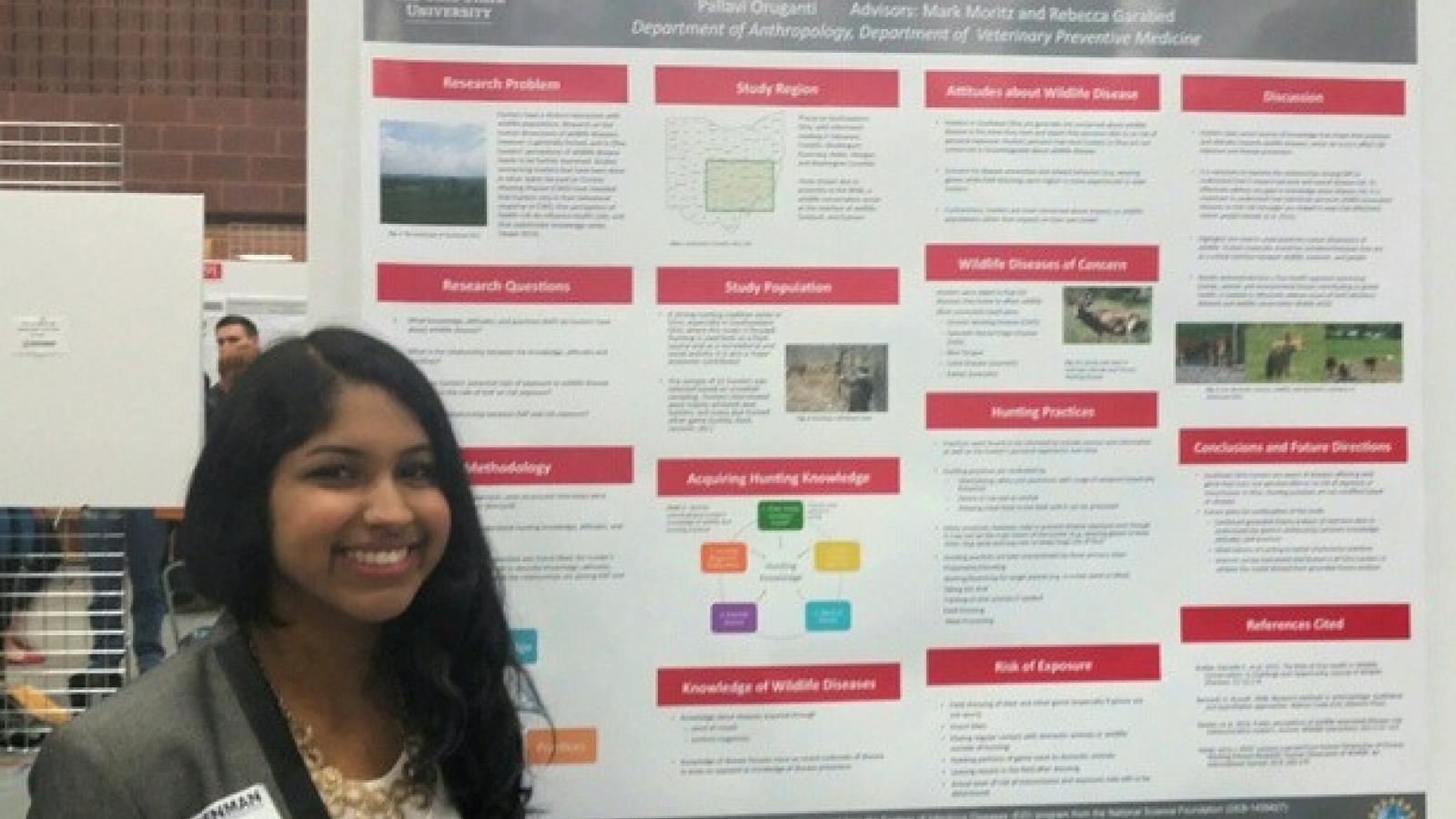Undergraduate Study and Research
What is Anthropology?
Anthropology is the study of the biology, society, and culture of humans and their nearest biological relatives, in all times and in all places.
Anthropology at the Ohio State University spans three of the major sub-disciplines of anthropology: cultural anthropology, archaeology, and biological anthropology.
Graduates that major in anthropology go on to diverse careers, such as working for state and local governments, teaching, public health and medicine, social work, publishing, marketing, environmental sciences, biological conservation and many others.
At Ohio State University, undergraduates take courses and undertake research with faculty who share interests in food and foodways, dietary adaptation, evolution of diet, ecology, and health.
Half of the faculty have interests in the origins, evolution, and intensification of plant and animal domestication and production, and most have interests in sustainability and health and well-being.
Majoring in Anthropology, Anthropological Sciences, or Medical Anthropology
The Department of Anthropology offers four baccalaureate degrees – a Bachelor of Arts in Anthropology, a Bachelor of Science in Anthropological Sciences, a Bachelor of Arts in Medical Anthropology, a Bachelor of Science in Medical Anthropological.
Since its introduction, the number of Anthropological Sciences majors increased from 23% in Autumn 2006 to 43% in 2014.
This growth reflects an increase in STEM-related programs since 2006, both in the Department of Anthropology and in the college and university generally.
30 credit hours are required for the BA in Anthropology; 36 are required for the BS.
Both majors require that undergraduates complete courses in physical anthropology, cultural anthropology, and archaeology. More information about the course requirements for these majors is provided in the links to the right.
The goal of the majors is to prepare students for employment that combines critical thinking, communication, and analytical skills with an understanding of human diversity in both time and space. This entails that students will be able to do the following:
- develop the ability to critically read and interpret the anthropological literature
- present anthropological information in a clear and logical manner, both orally and in writing
- apply knowledge of anthropological data, methods and theory to understand human diversity
- develop the capacity to analyze differences in culture (including material culture)
- develop an understanding of where the human species (Homo sapiens) is positioned in the natural world
- apply knowledge of modern applications from archaeology, ethnography, forensic science, and morphometrics to find solutions to a variety of anthropological problems
- students in the Anthropological Science major are expected to develop an understanding of mathematical and statistical methods and evolutionary theory.
Minoring in Anthropology
A minimum of 15 credit hours (5 courses) are required to minor in anthropology.
The student may complete a minor by choosing the archaeology, cultural anthropology, physical anthropology, or forensic science track.
Undergraduate Research
There are many opportunities for undergraduates to participate in anthropological research at Ohio State.
In the past, students have conducted studies of cattle herders in Cameroon, investigated markets in urban areas of the US, excavated archaeological sites in Ohio and Italy, and analyzed medieval European skeletons for the presence of particular diseases.
Read more about undergraduate research achievements and their participation in the Denman Undergraduate Research Forum, a campus-wide annual event presenting research posters.
Anthropology undergraduates have a strong presence at this event, and regularly receive awards. For example, in 2013-2014, three anthropology students won the respective first, second, and third place awards in the category of Social and Behavioral Sciences.
Meet our Undergraduates

My name is Zahra Ramakdawala and I am a freshman Stamps Eminence Scholar from northern Virginia majoring in Medical Anthropology and minoring in Biochemistry and Social Justice Advocacy. My research interests are in development/determinants of diseases, healthcare disparities, and global health from a humanist lens. In the future, I hope to be a primary care physician and work towards more equitable healthcare practices and policies."
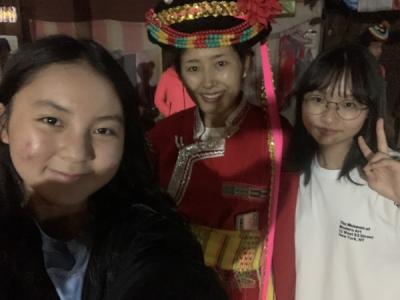
My interest in Anthropology germinated when I was six. At that time, Shenzhen, the city where I live, held an exhibition themed on mummies. I was fascinated by the way they preserve the bodies and the mystery of mummies, spiritual things hidden between the bands, behind the funeral tradition from a long-lost civilization.
I delved deep into books on tombs and anthropology, I wondered how people interpret the meaning of artifacts, and why they know this is something significant, this subject grew more curious about the excavation of relics, and I finally applied to anthropology & archaeology at the university, hoping to continue my exploration into the silent ancient times.
During the summer of 2023, I went to Yunnan (which is a Chinese province) to conduct field research on the Mosuo culture there. I spent five weeks at Lugu Lake conducting ethnographic research on the matrilineal society of the Mosuo people. During this time, I conducted an in-depth ethnographic study of the Lugu Lake Mosuo matrilineal families, focusing on their unique social structure, religious practices, and cultural customs.
While researching the Lugu Lake Mosuo matrilineal family, I learned about their religious practices (Daba beliefs) burial methods, concepts of life and death, and their approach to ecological conservation. I hope to continue to delve into their culture and beliefs during my time in college. Over these 5 weeks, I explored the intersection of culture, beliefs, and environmental stewardship of this unique culture group through fieldwork.
The result of these 5 weeks of research is my writing of “An Ethnography of Mosuo Matrilineal Families and Daba Beliefs in Lugu Lake.” They are currently manuscripts, but I hope to turn them into real papers in future research on anthropology.

